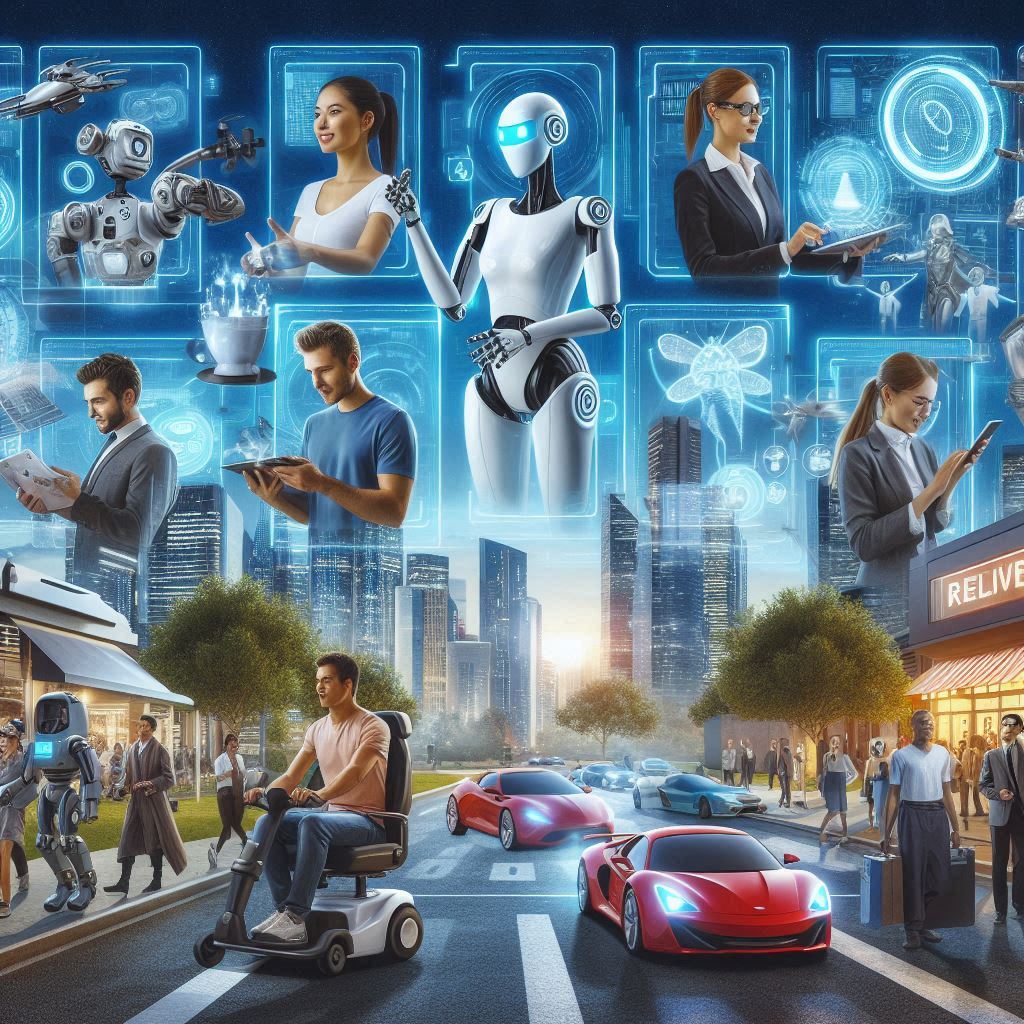Introduction:
As artificial intelligence (AI) continues to evolve, it’s reshaping industries across the globe. While AI may automate many tasks, it’s also paving the way for new and innovative job opportunities. These emerging roles span multiple sectors—from healthcare to finance, design to robotics. In this article, we’ll explore 10 exciting jobs AI might create in the future and how you can prepare for them.
1. AI Trainers: Shaping Machine Learning Models
AI systems learn from large datasets, but the data must first be curated and organized. AI Trainers will be responsible for labeling data and teaching AI models to recognize patterns and make accurate predictions. These professionals ensure that AI can learn effectively, making them crucial in AI development.
Skills Needed: Data labeling, machine learning, data analysis.
2. AI Ethicists: Ensuring Fair AI Development
As AI continues to grow in importance, ethical concerns are paramount. AI Ethicists will be needed to develop policies, guidelines, and frameworks that ensure AI technologies are designed and implemented ethically. Their role is critical in ensuring AI works fairly, respects privacy, and benefits everyone.
Skills Needed: Knowledge of AI, ethics, law, philosophy.
3. AI Interaction Designers: Crafting Seamless User Experiences
AI-powered applications such as virtual assistants and chatbots are becoming increasingly popular. AI Interaction Designers will work to make these tools intuitive and user-friendly, ensuring that human-AI interactions feel natural and efficient. These designers will focus on improving the usability of AI-powered systems across industries.
Skills Needed: UI/UX design, human-computer interaction, user testing.
4. Autonomous Vehicle Technicians: Maintaining Self-Driving Cars
With self-driving cars on the horizon, Autonomous Vehicle Technicians will play an essential role in keeping these vehicles in working order. These professionals will maintain and repair the complex systems that power autonomous vehicles, ensuring they run smoothly and safely.
Skills Needed: Robotics, automotive systems, AI integration.
5. AI-Powered Content Creators: Innovating with AI-Generated Media
AI is transforming the creative industries. AI-Powered Content Creators will work alongside AI tools to generate blog posts, videos, music, and even artwork. By collaborating with AI, content creators can produce high-quality material more efficiently, leading to a dynamic fusion of human creativity and machine intelligence.
Skills Needed: Creativity, writing, digital media production, AI tools.
6. Machine Learning Engineers: Building Smarter AI Systems
Machine Learning Engineers are in high demand and will continue to be essential in developing AI systems. They will design, implement, and optimize machine learning algorithms to ensure that AI models are effective, scalable, and able to handle large datasets.
Skills Needed: Programming, machine learning algorithms, data science.
7. AI Data Curators: Managing the Data Supply Chain
AI models rely on vast amounts of data to function. AI Data Curators will manage and organize this data, ensuring it is accurate, consistent, and ready for AI systems to use. They will play a vital role in providing clean, structured data that fuels AI’s learning process.
Skills Needed: Data management, data analysis, data quality control.
8. AI-Powered Financial Analysts: Predicting Market Trends with AI
AI is making waves in the finance industry by predicting market trends and automating trading strategies. AI-Powered Financial Analysts will leverage AI algorithms to analyze data, forecast trends, and make investment recommendations. These professionals will combine finance expertise with AI technology to drive smarter financial decisions.
Skills Needed: Finance, data analysis, machine learning in finance.
9. AI Safety Experts: Safeguarding AI Systems
With AI becoming an integral part of various industries, AI Safety Experts will focus on ensuring that AI systems are secure and function as intended. They will create safety protocols, conduct system tests, and address any vulnerabilities that could compromise AI-driven applications.
Skills Needed: Cybersecurity, AI system testing, risk management.
10. AI Compliance Officers: Ensuring Legal and Regulatory Adherence
As AI becomes more pervasive, it must comply with a range of legal and regulatory standards. AI Compliance Officers will ensure that AI technologies adhere to privacy laws, data protection regulations, and ethical standards. They will be pivotal in industries like finance, healthcare, and government, where compliance is critical.
Skills Needed: Legal knowledge, regulatory compliance, AI ethics.
Conclusion:
While AI may be feared for automating existing jobs, it is also creating new opportunities for skilled professionals. From AI trainers and ethicists to machine learning engineers and autonomous vehicle technicians, these roles will be pivotal in ensuring that AI systems are used safely, efficiently, and ethically. If you’re interested in these emerging fields, now is the time to start learning and preparing for a future where AI plays a central role in our workplaces.
Call to Action:
Are you ready to embrace the future of work? Start exploring AI-related skills today and stay ahead of the curve. Don’t forget to subscribe to our blog for more insights into the world of AI and tech careers!




One Comment